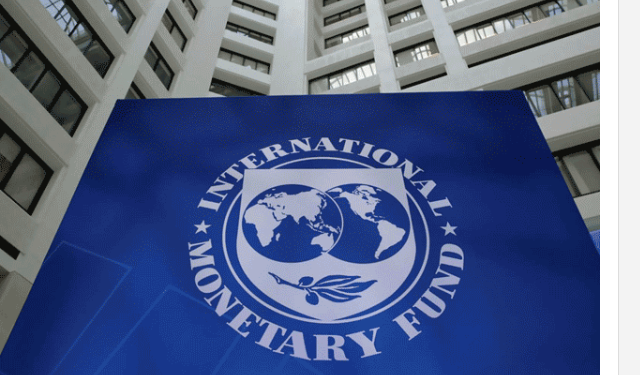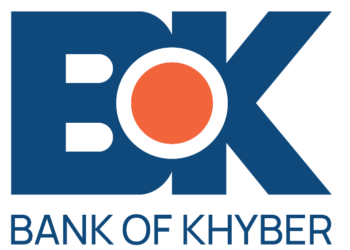Introduction
The International Monetary Fund (IMF) has raised serious concerns over Pakistan’s inability to effectively utilize beneficial ownership data—a critical tool in the fight against corruption, money laundering, and the misuse of shell companies. According to a draft report from the IMF’s Governance and Corruption Diagnostic Assessment, the country’s weak implementation of this system is undermining anti-money laundering (AML) efforts and allowing illicit actors to exploit loopholes for financial gain.
While Pakistan has made commitments under the Financial Action Task Force (FATF) framework to strengthen beneficial ownership rules, the IMF’s findings indicate a persistent gap between policy and practice. The report highlights systemic weaknesses in inter-agency communication, verification processes, and enforcement, all of which limit the effectiveness of financial investigations.
What is Beneficial Ownership and Why It Matters
Beneficial ownership refers to the natural person(s) who ultimately owns, controls, or benefits from a company or legal arrangement, even if the ownership is exercised through nominees, proxies, or other indirect means.
This information is crucial for:
- Preventing money laundering
- Detecting corruption and tax evasion
- Stopping shell companies from winning government contracts
- Ensuring transparency in public procurement and corporate governance
International best practices—endorsed by FATF—require countries to maintain accurate, up-to-date beneficial ownership registries and ensure that investigative agencies have timely access to this information.
IMF’s Key Observations
The IMF’s draft report identifies several major shortcomings in Pakistan’s beneficial ownership framework:
- Weak Inter-Agency Coordination
- No clear evidence of regular communication between the Securities and Exchange Commission of Pakistan (SECP) and investigative agencies.
- Lack of structured protocols for data sharing in financial crime investigations.
- Gaps in Implementation
- Although the legal framework exists, its execution is inconsistent across sectors.
- Some data remains incomplete, outdated, or unverifiable.
- Shell Company Risks
- Weak enforcement allows fake or proxy-owned companies to secure government contracts, increasing corruption risks.
- Limited DNFBP Oversight
- Certain Designated Non-Financial Businesses and Professions (DNFBPs)—such as real estate agents, jewelers, and accountants—are not fully integrated into the system.
Pakistan’s Response to IMF’s Concerns
Pakistani authorities have disputed some of the IMF’s claims, asserting that beneficial ownership data is actively used—except in cases involving certain DNFBPs. Officials maintain that:
- The SECP has given investigative agencies direct access to the beneficial ownership database.
- The Financial Monitoring Unit (FMU) uses this data to analyze suspicious transactions.
- Financial institutions have improved their focus on Politically Exposed Persons (PEPs) and adopted more risk-based due diligence procedures.
However, even these officials admit that technical capacity, compliance culture, and supervision standards in the DNFBP sector remain inconsistent.
A History of Incomplete Reforms
Pakistan introduced beneficial ownership rules in 2016, largely to meet FATF’s anti-money laundering and counter-terror financing standards. In 2018, the SECP mandated companies to collect and maintain detailed information about their beneficial owners.
The required data includes:
- Full name
- Father’s or husband’s name
- CNIC or passport number
- Nationality and country of origin
- Email address and residential address
- Date of registration and termination of ownership
- Reason for ownership termination
Despite these measures, enforcement has lagged—mirroring challenges in other areas of Pakistan’s AML compliance efforts.
Why This Matters for Anti-Corruption Efforts
Effective beneficial ownership registries are vital weapons in the global fight against corruption and illicit finance. They help:
- Expose front companies used to launder illicit funds.
- Prevent politically connected individuals from hiding assets behind layers of legal entities.
- Enable authorities to trace funds across borders, especially in complex financial crime cases.
When beneficial ownership systems fail, it becomes easier for criminals to channel stolen wealth into legitimate markets and evade detection.
The Role of Shell Companies in Corruption
Shell companies—entities with no real business activity—are a common tool for laundering money, evading taxes, and winning inflated or fraudulent government contracts. Without accurate beneficial ownership data, it is nearly impossible to identify who truly controls these companies.
The IMF warns that Pakistan’s weak enforcement allows such companies to flourish, siphoning public funds and undermining fair competition in procurement processes.
The IMF’s Recommendations for Pakistan
To address these shortcomings, the IMF has proposed several reforms:
- Create a Multi-Agency Working Group
- Involving SECP, State Bank of Pakistan, Federal Board of Revenue (FBR), FMU, law enforcement agencies, and provincial anti-corruption bodies.
- Tasked with reviewing beneficial ownership data and coordinating investigations.
- Improve Registry Verification
- Introduce stronger verification processes to ensure the accuracy and timeliness of beneficial ownership entries.
- Enhance Inter-Agency Data Sharing
- Develop automated systems for real-time access between regulatory, tax, and investigative bodies.
- Extend Oversight to DNFBPs
- Bring lawyers, accountants, jewelers, and real estate agents under stricter compliance monitoring.
International Context: Learning from Other Countries
Several countries have successfully leveraged beneficial ownership registries to fight financial crime:
- United Kingdom – Maintains a public beneficial ownership register, aiding transparency in corporate dealings.
- Ukraine – Linked its beneficial ownership data to public procurement systems, reducing corruption risks.
- Denmark – Introduced strict penalties for non-compliance, resulting in higher accuracy rates.
Pakistan could adapt similar approaches, but it would require both political will and institutional capacity.
FATF Compliance and Global Standing
Pakistan’s recent removal from the FATF “grey list” was seen as a major diplomatic win, but it came with the understanding that reforms must be sustained. Weak beneficial ownership enforcement could risk renewed scrutiny from FATF and other global watchdogs—potentially impacting foreign investment and access to international financing.
The Way Forward: Building a Culture of Compliance
For Pakistan to truly benefit from its beneficial ownership framework, reforms must go beyond legal formalities. This means:
- Strengthening training programs for regulatory and investigative staff.
- Cultivating a compliance culture among businesses.
- Establishing penalties for false, incomplete, or late beneficial ownership filings.
- Encouraging public-private cooperation in detecting suspicious activities.
Conclusion
The IMF’s assessment serves as a wake-up call for Pakistan’s financial and regulatory institutions. While the legal foundation for beneficial ownership transparency exists, its inconsistent application is allowing corruption-related money laundering schemes to persist.
Without stronger enforcement, improved inter-agency coordination, and greater oversight of DNFBPs, Pakistan risks undermining years of anti-money laundering progress.
The fight against illicit finance is not only about meeting FATF checklists—it is about protecting public resources, restoring trust in governance, and ensuring a level playing field for honest businesses.

























